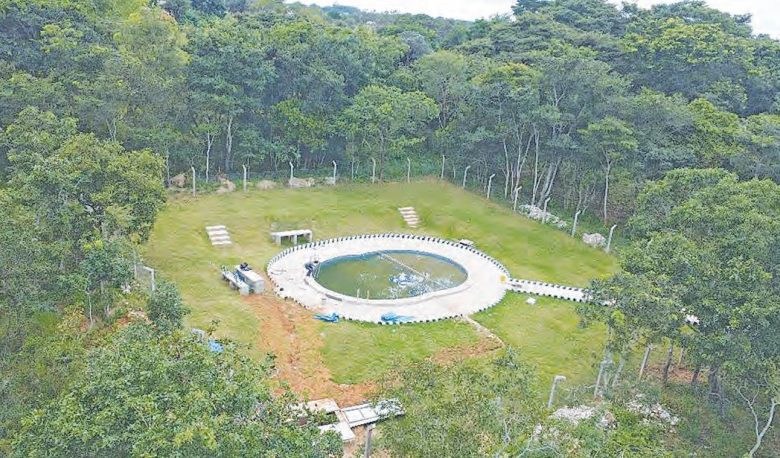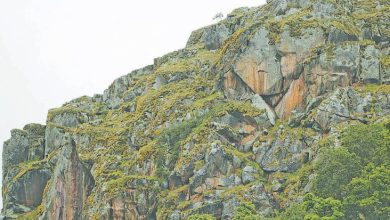Ruvuma’s best-kept secret? Ruhila Zoo has it all

RUVUMA: AS part of our ongoing series highlighting the tourist attractions of Ruvuma Region, Daily News turns the spotlight today on Ruhila Wildlife Garden (Ruhila Zoo), located under the jurisdiction of the Tanzania Wildlife Management Authority (TAWA), in the Southeastern Zone.
This hidden treasure is just eight kilometres from the Ruvuma Regional Commissioner’s Office, in the heart of Songea Municipality. Ruhila Zoo has a rich history.
Initially established in 1973 under regional authorities, it was later transferred to the Ministry of Natural Resources and Tourism under the Wildlife Division in 1990.
In 2006, it came under the Tanzania Wildlife Protection Fund (TWPF) and finally, in 2017, TAWA took over full responsibility for its conservation and development into a tourism site.
The zoo boasts an abundance of indigenous vegetation, including miombo woodlands, misukusuku and mipangapangatrees, which have naturally thrived in the area for over 52 years, preserving the authenticity of the environment.
According to Daudi Tesha, the Wildlife Conservation Officer overseeing the zoo, the name “Ruhila” originates from the large Ruhila River that runs through the middle of the garden.
He said, “The river once had dangerous rapids and many people who attempted to cross without proper crossings would fall and drown. The locals began using the word kuhira to describe drowning, which eventually evolved into the name ‘Ruhila.’ Since the river runs through the zoo, the name stuck.”
The zoo is home to a variety of free-roaming animals including zebras, wildebeests, bushbucks, impalas, duikers, dik-diks and warthogs.
There are also more dangerous animals housed in secure enclosures to ensure both visitor safety and ease of viewing such as lions, leopards, elephants, peacocks and parrots.
ALSO READ: TAWA’s supportive environment opens new tourism opportunities
To enhance the visitor experience, TAWA has developed several facilities including rest huts, a multi-purpose hall equipped with dining services and a television area for watching sports and entertainment.
The zoo also features a swimming pool and a children’s playground with activities such as bike riding and toy car driving.
For those seeking more immersive experiences, Ruhila Zoo offers a designated camping area with complete access to essential services like electricity, water and mobile connectivity.
The area is easily accessible via car, motorbike, or local three wheeled bajaji. Entry fees are set at 5,900 for children and 11,800 for adults, while other services within the zoo range from 3,000 to 10,000, depending on the activity.
Tesha notes that most visitors are domestic tourists, primarily from within Songea Municipality. These include school groups, college students and staff from various institutions.
The zoo currently averages 52 visitors per week, with the peak season running from July to October after the rainy season and the conclusion of farming activities.
William Shirima, a resident of Mkuzo in Songea, expressed his satisfaction with the zoo, saying, “I was impressed by the serene environment, the presence of animals and the affordable prices. I encourage others to come and experience domestic tourism.”
Romana Ngonyani added, “I really enjoyed this beautiful sanctuary. The lions, especially the cubs, were a delightful sight.”
Investment Opportunities in Ruhila Zoo According to Tesha, the zoo offers numerous investment opportunities. TAWA has designated specific areas for hotel development.
“We’ve prepared a beautiful location where investors can build accommodation facilities with a panoramic view of the entire zoo,” he said.
There is also a dedicated area along the Ruhila River for tented camp investment, ideal for attracting tourists seeking unique overnight experiences. This also opens up prospects for fishing tourism in the area.
Another untapped opportunity lies in the development of adventure infrastructure, such as nature trails and zip lining, capitalising on the landscape shaped by the Ruhila River valley and the surrounding large trees.
Tesha further invites investors to establish food and beverage outlets within the multi-purpose hall constructed by TAWA. Looking ahead, TAWA has plans to introduce more wildlife species especially those that offer interactive experiences like feeding and photo opportunities. These include giraffes, gazelles, warthogs and ostriches.
There are also future plans to introduce walking safaris and mobile enclosures enabling people with limited time to still observe various animals up close without needing to venture deep into the reserve.
Tesha takes pride in the fact that Ruhila Zoo has retained its natural state for over 52 years and commends the Songea community for their unwavering support.
“I must thank the people of Songea. We don’t face many challenges like poaching not because we’re exceptionally skilled at protecting the area but because of the strong community support,” he said.
He added, “They see this as their own. That’s why we’ve never had cases of illegal hunting or deforestation. Our conservation success depends heavily on the local community and we’re deeply grateful.”
With the ongoing government efforts and investments in the tourism sector in Ruvuma, Tesha is optimistic about Ruhila’s future.
“In five years, Ruhila will be a major attraction. If our dreams come true, people will know about Ruhila Zoo from as far as Kampala, Kigali and beyond. I want it to become that famous,” he declares.






667187 398529Plenty of writers recommend just writing and composing no matter how bad and if the story is going to develop, you will suddenly hit the zone and itll develop. 242946